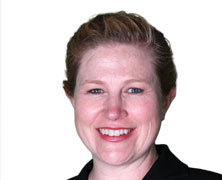I would not have the joy and honor of helping to lead the nation’s largest and most influential grassroots environmental organization today if I had not followed in the footsteps of my mother, grandmother, and great-grandmother by receiving a great education at Indiana University. So it outrages me that women in other parts of the world are routinely deprived of their right to learn and grow. This isn’t just a personal passion. As an executive with the Sierra Club, I also have a professional stake in seeing women worldwide become educated.
Education and environmental activism go hand in hand. Women have always been among the fiercest protectors of the air, water and land that their families and communities depend on for health and livelihoods. A strong education focuses our instinct to defend our habitat. Knowledge makes us more powerful advocates.
Among my heroes is Lois Gibbs, who took on formidable corporate and political adversaries to fight against the toxic waste she found stored under her kids’ elementary school in Love Canal, New York. She broke ground for the path I took to become, at age 37, national program director of Sierra Club.
My job is to help guide our talented staff and 1.4 million members and supporters as they strive to protect beautiful places and to safeguard our water and air by moving the nation toward clean energy prosperity. It’s fun, but it’s not easy. Among my sure sources of inspiration is the annual Goldman Environmental Awards.
How could anyone stay discouraged when hearing award winner Ikal Angelei, 31, describe how she is successfully holding off a hugely destructive dam in her native Kenya, or when listening to Caroline Cannon, an Inuit-American, describe her struggle to keep oil companies from drilling in the fragile Arctic waters that feed her family and neighbors?
It’s no coincidence that many of the countries that treat women most poorly, in part by denying them education, also have destructive environmental policies and deplorable levels of pollution. If we Americans want to save our planet, we need to make sure women worldwide gain access to the books and teachers and classrooms that will teach them the spectrum of knowledge and skills needed to take on a share of this daunting but winnable fight.







